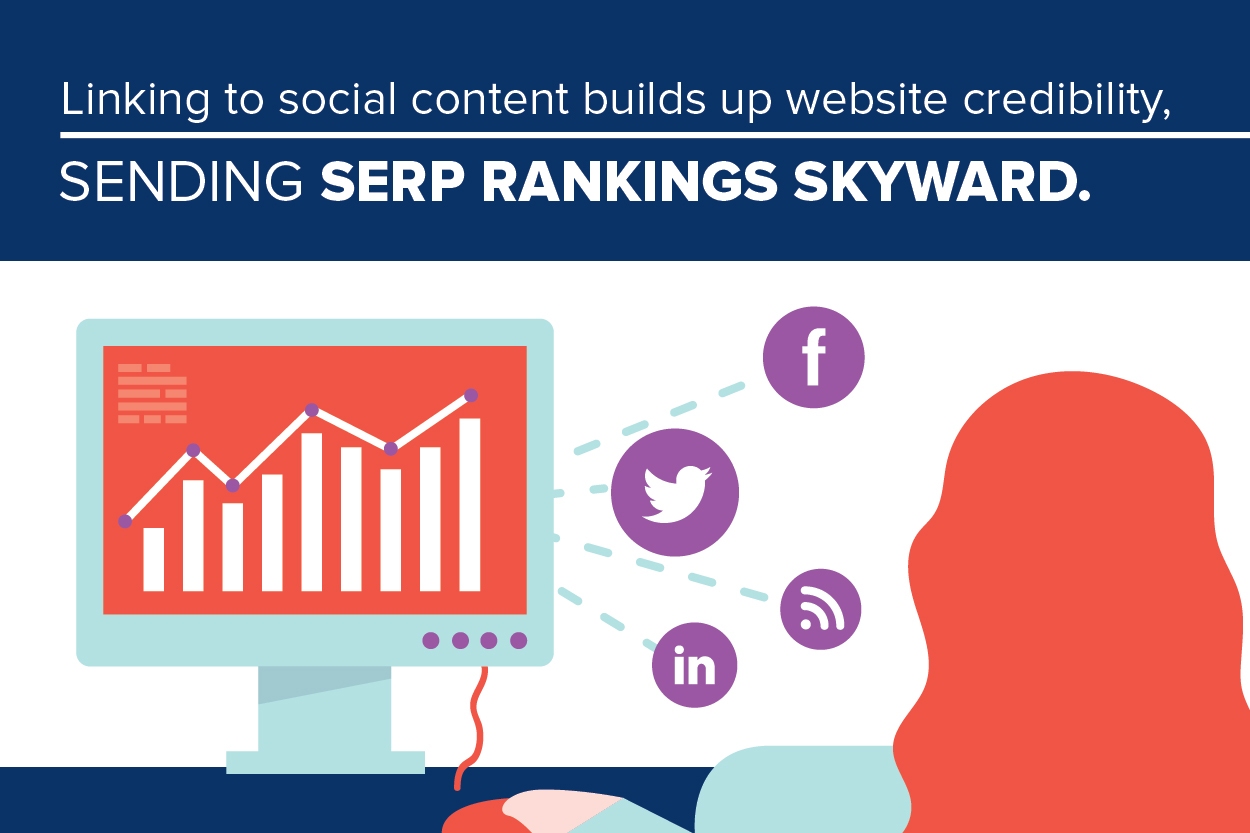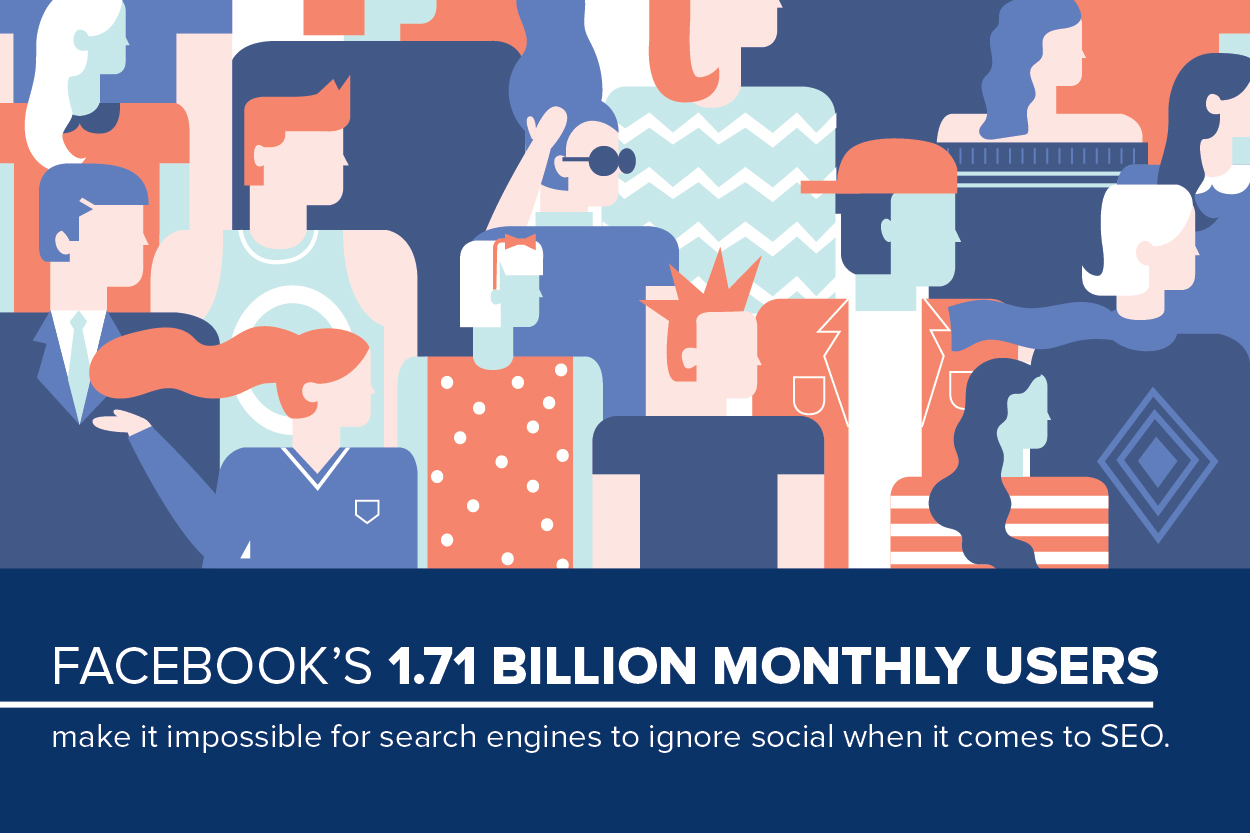Correlation is not causation, but there’s no doubt social media impacts search engine optimization.
Search engines like Google do not allow signals from social media sites to directly affect ranking. Yet social media gives marketing professionals many ways to put their businesses front and center on search engine results pages.
Consider these six ways social media impacts SEO:
1. Social sharing drives traffic to websites
Posting links to quality content can garner shares, likes and comments. It also encourages social media users to migrate to official business websites.

Engaging with prospective clients via social media helps you keep your brand top of mind. By driving social traffic back to official websites, you’re able to increase organic search ranking. This lends greater authority to your site in the eyes of search engines.
TIP: Regularly share links to website content on appropriate social media sites. Some platforms, such as LinkedIn, lend themselves to posting long-form content directly.
2. Social media profiles rank in search engines
If you type the name of a business in a search engine, its social media profiles will likely pop up along with its official website.
If a company is able to rank not only its website, but its social profiles as well, it will take up valuable real estate at the top of SERPs. This can help businesses beat out potential competitors in terms of visibility.
TIP: Make sure all pertinent social profiles are active and consistently engaging with audiences. What’s most important is targeting the platforms that resonate most with your prospective customers.

When your social profiles align with your site, you’ll be more visible in SERPs.
3. Capturing external links is easier with social media
External links, and the authority of the websites doing the linking, comprise the most important factor for achieving high rankings in Google, according to Moz.
You can use social media platforms to share and promote your content. This increases the likelihood of other websites referring and linking back to it.
TIP: Craft high-quality content to post on social media. People are more likely to link to content they want to read and share themselves.
4. Social media boosts brand awareness
Facebook had 1.71 billion monthly active users during the second quarter of 2016, and there were 317 million monthly active users on Twitter as of the third quarter. Both these figures, supplied by Statista, illustrate just how important social media has become for generating brand awareness.

TIP: Consistently engage with social audiences by asking questions, starting discussions and commenting on news and trends.
5. Local SEO relies on social media
Google, Ipsos Media and Purchased reported 80 percent of smartphone users perform mobile searches to find businesses near them. In short, geography plays a major role in user experience, and search engines are paying attention.
Social websites such as Yelp make it simple for businesses to leverage locality. These sites offer an opportunity to show geographic placement and provide an arena for customers to discuss the business. The more people review or engage with your business online, the more likely it is search engines will take notice and incorporate you into local SERPs.
TIP: Ensure the geographic information for your business matches across all platforms and websites. Differences in address, phone number or other information could lead to a lower SERP ranking.
6. Different search engines are partial to specific social media activity
Google accounts for nearly three-quarters of search engine market share, according to Search Engine Watch. However, it’s not the only game in town.
Bing is the second most-used search engine. Speaking to Search Engine Land, Bing said it looks at the social authority of users, including how many people follow them, when assigning weight to SERPs.
Meanwhile, Google is naturally partial to Google+. Using this platform helps Google+ profiles show up in SERPs, once again putting businesses directly in front of consumers.
TIP: Account for other search engines besides Google when crafting SEO strategies. Implement plans that will cast as wide a net as possible.
While social media may not have a direct connection to SEO, it certainly influences online marketing success. As the number of social media users continues to rise, it’s likely social signals will become more powerful in terms of ranking. By producing content worth sharing and taking advantag
e of the platforms available, you can maximize the benefits you receive from social media.





